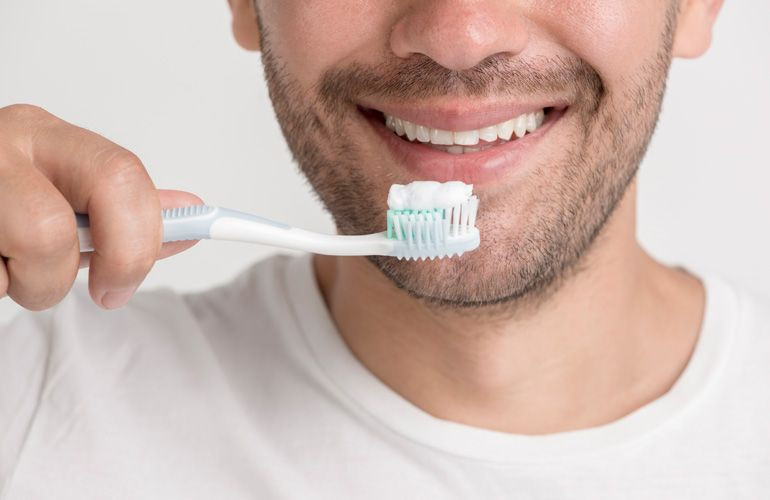When the word “toothbrush” comes to mind, chances are that you think of the regular type— a handle and bristles where all the brushing has to be done manually. This makes perfect sense, seeing how long the toothbrush has been around.
The manual toothbrush that everyone knows, loves, and continues to use today was invented in the earlier half of the 20th century. It has gone through several design revisions, but the original concept of use behind it has never changed.
In the 1990s, however, the toothbrush underwent a transformation with a hint of modernization and motors to it, making way for the inception of the electric toothbrush. As a more convenient alternative to the modern toothbrush, electric toothbrushes remove the aspect of having to move your arm up and down and back and forth by using motors that vibrate or rotors that spin bristle pads to carry out regular cleaning.
When it comes to putting manual toothbrushes up against electric ones, a perennial question comes to mind: which one is better than the other?
To put it simply, the answer to the question can depend on the situation that you’re in and what you look for in a toothbrush. There are a host of factors that have to be considered before you determine that one is better than the other. In order to make it easier for you to choose which type of toothbrush is best for you, let’s look at the pros and cons of each one:
Manual Toothbrushes
Best known as the “stick” toothbrush, manual toothbrushes are typically made of plastic, bamboo, or another type of reusable material. Whether it’s in a drugstore, a department store, or a dollar store, standard manual toothbrushes are one of the most widely available commodities on the market, making them an easy option to find.
The Pros:
- You’ll be able to clean your teeth with a proper brushing technique thanks to the controllable nature of manual toothbrush.
- You can choose between multiple toothbrush styles, bristles, heads and colors in order to suit your needs and desires. This means that you can choose soft bristles if you have sensitive gums or a smaller toothbrush head if you have a smaller mouth.
- If you have a child that needs a bit more motivation to brush, some brands even make special prints on toothbrushes for children (to put it simply, you’ll never be short of options with manual toothbrushes).
- Manual toothbrushes are easy to travel with because all you need is a toothbrush case and you’re all set to go for your trip. There’s no need to worry about batteries or charging outlets!
- Manual toothbrushes don’t need batteries or charging, which makes them inexpensive. In fact, they’re often free when you make a trip to your dentist!
The Cons:
- You’ll have to do more work when brushing your teeth.
- Manual toothbrushes require you to guess how long your brushing session will last because they don’t come with a built-in timer (unless you set a two-minute alarm on your watch).
- Stick toothbrushes are usually less sustainable due to the use of non-biodegradable materials.
Electric Toothbrushes
On the other hand, electric toothbrushes are seen as a more convenient way to maintain and improve dental hygiene. By taking the need for hand movement out of the situation, the electric toothbrush makes it much easier to get a deeper clean in a shorter amount of time.
The Pros:
- Electric toothbrushes are easy to use because all you need to do is place the toothbrush at a 45° angle and let it do its thing.
- According to several studies conducted on electric toothbrushes in comparison to manual ones, results have shown that electric toothbrushes do a much better job of cleaning your mouth while removing plaque and reducing the chances of gingivitis.
- Children find electric toothbrushes much easier to use and often much more fun.
- Okay, okay— adults do too.
- Most electric toothbrushes come with a built-in timer, which prevents users from over brushing.
The Cons:
- Continuous charging or battery replacement is a non-negotiable when it comes to electric toothbrushes.
- Electric toothbrushes are far more expensive than manual ones, especially when you purchase from trustworthy brands.
- Electric toothbrushes are not as easy to travel with, as they are typically bulky. Bringing a charger along doesn’t help with space issues.
- When it comes to durability, electric toothbrushes get the short end of the stick as they can break easily due to their tiny internal components.
When it all comes down to it, whether you should choose an electric or manual toothbrush is up to your discretion. Prefer something cheap and portable? Go for the stick. Enjoy the extra fresh feeling that an electric brush gives you? Try that instead! It’s up to you!
If you’re looking for a local dentist to help you with your dental health, get in touch with us today for a free consultation.



